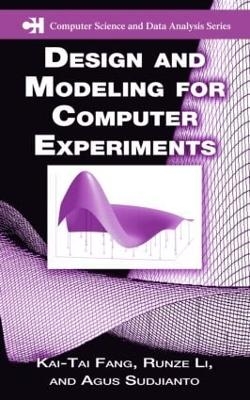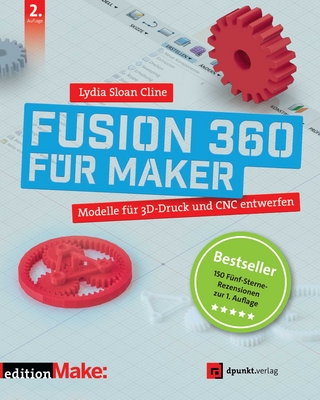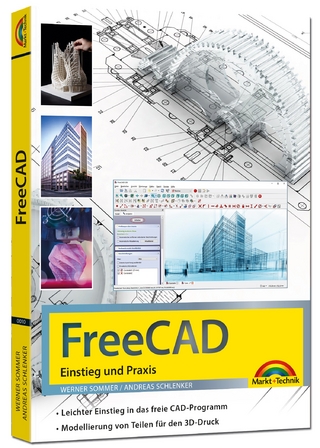
Design and Modeling for Computer Experiments
Seiten
2005
Chapman & Hall/CRC (Verlag)
978-1-58488-546-7 (ISBN)
Chapman & Hall/CRC (Verlag)
978-1-58488-546-7 (ISBN)
Combines a statistical approach with engineering applications and delineates the steps for successfully modeling a problem and analyzing it to find the solution. This work introduces basic concepts and examines computer experiment design. It presents various modeling techniques and discusses model interpretation, including sensitivity analysis.
Computer simulations based on mathematical models have become ubiquitous across the engineering disciplines and throughout the physical sciences. Successful use of a simulation model, however, requires careful interrogation of the model through systematic computer experiments. While specific theoretical/mathematical examinations of computer experiment design are available, those interested in applying proposed methodologies need a practical presentation and straightforward guidance on analyzing and interpreting experiment results.
Written by authors with strong academic reputations and real-world practical experience, Design and Modeling for Computer Experiments is exactly the kind of treatment you need. The authors blend a sound, modern statistical approach with extensive engineering applications and clearly delineate the steps required to successfully model a problem and provide an analysis that will help find the solution. Part I introduces the design and modeling of computer experiments and the basic concepts used throughout the book. Part II focuses on the design of computer experiments. The authors present the most popular space-filling designs - like Latin hypercube sampling and its modifications and uniform design - including their definitions, properties, construction and related generating algorithms. Part III discusses the modeling of data from computer experiments. Here the authors present various modeling techniques and discuss model interpretation, including sensitivity analysis. An appendix reviews the statistics and mathematics concepts needed, and numerous examples clarify the techniques and their implementation.
The complexity of real physical systems means that there is usually no simple analytic formula that sufficiently describes the phenomena. Useful both as a textbook and professional reference, this book presents the techniques you need to design and model computer experiments for practical problem solving.
Computer simulations based on mathematical models have become ubiquitous across the engineering disciplines and throughout the physical sciences. Successful use of a simulation model, however, requires careful interrogation of the model through systematic computer experiments. While specific theoretical/mathematical examinations of computer experiment design are available, those interested in applying proposed methodologies need a practical presentation and straightforward guidance on analyzing and interpreting experiment results.
Written by authors with strong academic reputations and real-world practical experience, Design and Modeling for Computer Experiments is exactly the kind of treatment you need. The authors blend a sound, modern statistical approach with extensive engineering applications and clearly delineate the steps required to successfully model a problem and provide an analysis that will help find the solution. Part I introduces the design and modeling of computer experiments and the basic concepts used throughout the book. Part II focuses on the design of computer experiments. The authors present the most popular space-filling designs - like Latin hypercube sampling and its modifications and uniform design - including their definitions, properties, construction and related generating algorithms. Part III discusses the modeling of data from computer experiments. Here the authors present various modeling techniques and discuss model interpretation, including sensitivity analysis. An appendix reviews the statistics and mathematics concepts needed, and numerous examples clarify the techniques and their implementation.
The complexity of real physical systems means that there is usually no simple analytic formula that sufficiently describes the phenomena. Useful both as a textbook and professional reference, this book presents the techniques you need to design and model computer experiments for practical problem solving.
Kai-Tai Fang, Runze Li, Agus Sudjianto
PART I: AN OVERVIEW: Introduction. PART II: DESIGNS FOR COMPUTER EXPERIMENTS: Latin Hypercube Sampling and its Uniform Experimental Design
Optimization in Construction of Designs FOR Computer Experiments. PART III: MODELING FOR COMPUTER EXPERIMENTS: Metamodeling. Model Interpretation
Functional Response. APPENDIX: Some Useful Concepts in Statistics and Matrix Algebra. Abbreviation. References. Index. Author Index.
| Erscheint lt. Verlag | 14.10.2005 |
|---|---|
| Reihe/Serie | Chapman & Hall/CRC Computer Science & Data Analysis |
| Zusatzinfo | 47 Tables, black and white; 13 Halftones, black and white; 60 Illustrations, black and white |
| Sprache | englisch |
| Maße | 156 x 234 mm |
| Gewicht | 720 g |
| Themenwelt | Informatik ► Grafik / Design ► Digitale Bildverarbeitung |
| Informatik ► Theorie / Studium ► Algorithmen | |
| ISBN-10 | 1-58488-546-7 / 1584885467 |
| ISBN-13 | 978-1-58488-546-7 / 9781584885467 |
| Zustand | Neuware |
| Haben Sie eine Frage zum Produkt? |
Mehr entdecken
aus dem Bereich
aus dem Bereich
Modelle für 3D-Druck und CNC entwerfen
Buch | Softcover (2022)
dpunkt (Verlag)
34,90 €
alles zum Drucken, Scannen, Modellieren
Buch | Softcover (2024)
Markt + Technik Verlag
24,95 €


